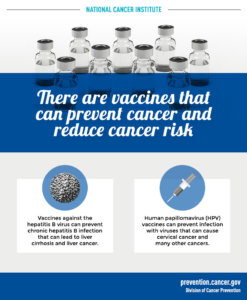The COVID-19 pandemic may soon push scientists towards work against cancer, autoimmune diseases and other illnesses.
The vaccines from drug companies Moderna and Pfizer-BioNTech use a new way to train the body’s immune system to respond to infection.
They are testing the same techniques to recruit the immune system to attack tumors. And when immune system attacks go wrong, as in multiple sclerosis or other autoimmune diseases, the same tools may be able to call them off.
The active ingredient in vaccines from drug companies Moderna and Pfizer-BioNTech is called mRNA. These mRNA vaccines for various ailments have been under development for several years, but the COVID-19 vaccines are the first to make it into widespread use.
“Certainly the COVID epidemic has sped that up,” said Drew Weissman, a professor of medicine at the University of Pennsylvania, “and has really shown the world what RNA vaccines are and what they can do.”

Carriers of genetic instructions
RNA is similar to DNA, the chemical that stores our genes. The “m” in mRNA stands for messenger. DNA stores our genetic blueprints, while mRNA carries a copy of those blueprints to the molecular factories where cell parts are built.
In the coronavirus vaccines, the mRNA carries instructions for building a piece of the virus. The patient’s body builds that virus piece, which primes the immune system to respond if the real virus should come along.
That’s a major change from how vaccines traditionally have worked. Most vaccines contain an actual piece of the virus, or a killed or weakened version of the virus itself.
Producing traditional vaccines has meant growing large quantities of the virus or its parts in finicky living systems such as chicken eggs or vats of cells, and then purifying it to produce a safe product.
The mRNA vaccines are much faster and easier to produce. RNA is simply a string of molecules that can be assembled by a laboratory instrument. That’s one reason the coronavirus mRNA vaccines were produced so quickly.
Custom tumor treatment
That’s also why scientists see promise in mRNA vaccines for cancer. While existing drugs target just a few specific mutations commonly found in cancer cells, mRNA vaccines can be customized to an individual patient’s tumor.
Each tumor has a unique array of mutations. In melanoma, for example, exposure to sunlight damages DNA in random places throughout the genes of a patient’s skin cells. Some of those mutations are what turns the cell cancerous.
But since these mutations are found only in the cancerous cells, they provide a target for the immune system to attack without harming the patient’s healthy cells.
The first, early-stage clinical trial of an mRNA cancer vaccine was published in 2017 in the journal Nature. Researchers from BioNTech and colleagues took tumors removed from 13 patients with melanoma. They read the entire genomes of the cancer cells and identified 10 mutations in each tumor. The researchers gave each patient a unique mRNA vaccine based on the mutations in their own tumors.
Eight of those patients were still tumor-free when scientists checked up on them again a year or two later — an unexpectedly high rate of remission. One patient’s tumor returned, but went into remission when given another drug.
A larger study is needed before the treatment could go on the market. And the results would need to hold up in a larger study before the treatment could go on the market.
But Weissman, who was not involved with the study, called them “pretty fantastic results.”
Other companies are pursuing mRNA cancer vaccines, too, including Moderna, the other mRNA COVID-19 vaccine maker.
Peacemakers
While these treatments prime the immune system to attack, others are developing vaccines that will trigger a retreat.
In multiple sclerosis, patients’ immune systems attack the myelin sheath surrounding their nerve fibers. The disease can cause muscle weakness, vision problems and other debilitating symptoms.
Treating MS can involve wholesale suppression of the immune system, raising the patient’s risk of infections.
In addition to its attackers, the immune system has a set of cells that tamp down their action. It’s these cells that researchers targeted in a recent study in the journal Science.
They developed an mRNA vaccine that primes these peacemakers to quiet the immune cells going after myelin.
The vaccine blocked all symptoms in laboratory mice, and it halted progression of the disease in mice already showing symptoms.
“Until you can get it into people, we won’t know for sure” how well it works, Weissman cautioned. “But I think it has fantastic potential.”
Weissman and his colleagues are working on mRNA vaccines to treat allergies. He has another in development against sickle cell anemia.
While the COVID-19 vaccines may be the first to market, they could be just the tip of the iceberg for RNA therapies.

